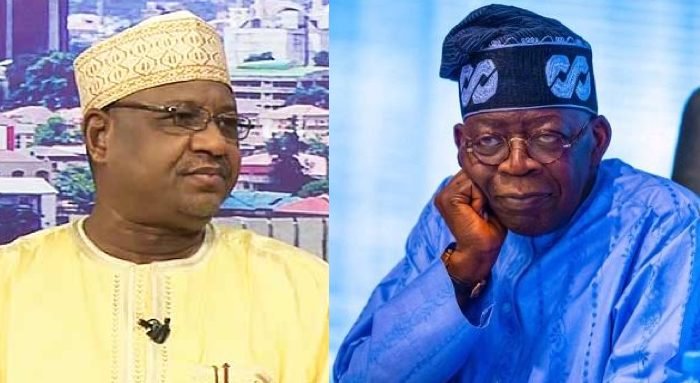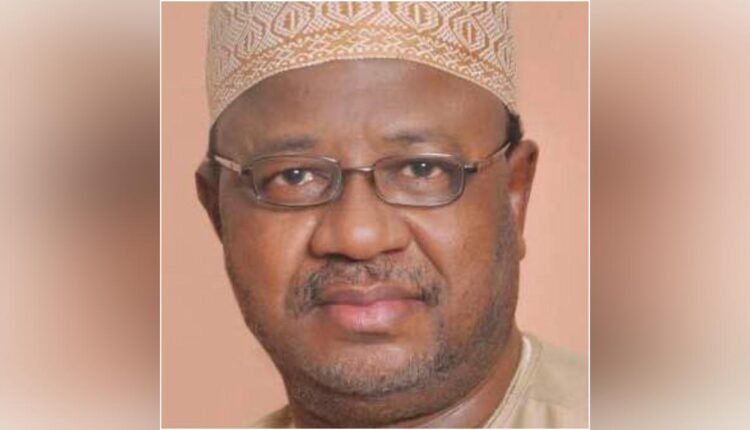President Tinubu and the Price of Unconstitutionality
President Tinubu and the Price of Unconstitutionality
By Umar Ardo, Ph.D
Since assuming office, President Bola Ahmed Tinubu has committed and, in some cases, openly endorsed acts that amount to grave violations of the Nigerian Constitution. These violations, cloaked in political expediency, threaten not only the credibility of his regime but also the very foundations of Nigeria’s fledgling democracy. The most egregious examples include the unconstitutional removal of the duly elected Governor of Rivers State and the orchestrated defections of elected legislators – at both national and state levels – into the ruling All Progressives Congress (APC) without adhering to the constitutional provisions guiding such defections.

2. These actions, if not urgently halted and reversed, will have far-reaching political and electoral consequences, both for President Tinubu himself and the Nigerian state. They represent a dangerous descent into executive lawlessness, erosion of democratic culture and a return to authoritarian impunity that characterized Nigeria’s darker political history.
3. At the heart of every constitutional democracy is the supremacy of the constitution. By committing or condoning acts that contradict expressed constitutional provisions, the president sends a chilling message that power, and not law, is supreme. Section 188 of the constitution outlines a rigorous and transparent process for removing a sitting governor. Yet, by some political machinations in Rivers State, with the clear complicity of the president, this process was circumvented and an elected governor was removed from office, thereby eroding public confidence in constitutional safeguards and thus destabilizing the entire polity.
4. Similarly, Section 68(1,2)(g) of the same constitution expressly prohibits elected legislators from defecting from one party to another without justifiable cause, such as a division within their sponsoring party. Not only did the president openly welcome them, but also publicly declared that “more are still coming,” referring to defectors into the APC. This is not only an open defiance of constitutional order but a brazen encouragement of illegality. This is an assault on constitutionalism and rule of law.
5. Nigeria’s electoral system, already strained by low public trust, is being further weakened by these unconstitutional acts. The right of the electorate to vote for specific parties and candidates is violated when their elected representatives cross over to other parties without cause or consequence. It invalidates the principle of representative democracy and reinforces the notion that elections are mere rituals with no binding consequences. This is a clear undermining of electoral integrity.
6. For President Tinubu, this portends a serious danger. As more Nigerians become disillusioned by the apparent disregard for their votes, electoral apathy will increase. More dangerously, it could incite civil disobedience and spark violent movements demanding electoral justice, further delegitimizing the regime.
7. A government that operates outside the constitution quickly loses its moral and political legitimacy. When leaders behave as though they are above the law, the governed lose faith in both leadership and the state. President Tinubu’s open endorsement of illegal defections and direct facilitation of the Rivers State unconstitutionality positions him as a beneficiary of illegality. In the eyes of the people, he becomes complicit in the erosion of rule of law. This perception is dangerous in a pluralistic and restive country like Nigeria. It hardens opposition groups, emboldens separatist sentiments, precipitates crisis of leadership legitimacy and fracture the political machine of the regime; the very fundamental elements that are manifesting in the current transitional politics! Ultimately, it will lead to instability, both within the ruling party and in the wider polity.
8. Politically for the regime, these actions risk alienating key political blocs that supported its victory in the first place. Civil society, trade unions, the media, religious leaders and even some elements within the ruling elites will be critical of the regime’s authoritarian drift. In the long run, it will split the government and the party along ideological lines and provide the fertile ground for the emergence of a strong opposition.
Read Also; Federal Roads: Gov. Buni Charges House Committee On FERMA
9. Electorally, the consequences will be devastating. The electorate will punish a government that disdains their democratic rights. In a society marked by ethnic, regional and religious diversities, it is fatal for his administration to be perceived as manipulating institutions for political gain. It risks being rejected in subsequent elections, especially since the current economic hardship and insecurity continue to worsen. It is easy for the opposition to organize and defeat the incumbent.
10. President Tinubu must understand that real statesmanship in leadership lies in strengthening institutions, not in manipulating them for short-term gains. He must therefore halt and reverse these unconstitutional trends if he is to restore confidence in the electorate in the hope of getting reelected. Restoring respect for the Constitution, ensuring the independence of the legislature and judiciary and punishing illegality within his party and administration are the only steps that will help his cause. Otherwise, not only would he likely be rejected at the polls in 2027 but history will also remember his presidency not for progress or reform, but for manipulating the law for political gains, and for making a regressive mess of Nigerian democracy. Millions of Nigerians will also not forget him as having traded their lives and hopes for raw political power.
11. Let me conclude by emphasizing that the survival of Nigeria’s democracy is hinged on rule of law. No leader, no matter how powerful, can violate this principle with impunity without severe repercussions. President Tinubu’s continued commitments, tolerance or encouragement of unconstitutionalities may offer short-term political gains, but they will almost certainly lead to long-term political and electoral costs – both for him and his administration, and for the nation itself! If not quickly checked, these actions may likely provoke a social crisis capable of unraveling the democratic experiment in Nigeria.

